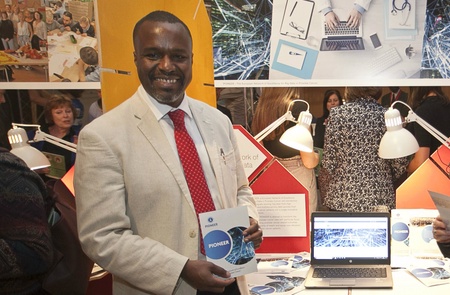Pan-European research collaborations involving the University of Aberdeen were highlighted as part of a conference held in Germany to celebrate partnerships between UK and German universities.
The British Council’s ‘Going Global’ conference saw leaders in international education meet to debate the future of higher and further education.
As part of the conference, the University took part in two events to celebrate the best examples of collaborative research involving UK and European institutions.
The first event - a research showcase at the British Embassy in Berlin - was a collaboration between BUILA (the British Universities International Liaison Association), and its German counterpart, supported by the British Council and Universities UK International.
Two projects involving researchers from the University and German institutions were highlighted at the event, including the COSMOS project, involving Professor Antonio Politi from the University’s Department of Physics, which aims to understand complex systems to help detect disease early.
The other featured research was the PIONEER project, led by Professor James N’Dow, which seeks to apply big data to transform prostate cancer care, with a focus on improving outcomes and the quality of health and social care delivered to patients.
A separate Connected Scotland event held in the German capital – which again took place as part of the Going Global conference - featured the IDentIFY project, led by Professor David Lurie, which is developing the next generation of MRI scanners - known as Fast Field-Cycling MRI.
Liz Rattray, the University’s Director of Research and Innovation, was in Germany as part of the Going Global conference, and spoke at the Connected Scotland event which involved alumni from various Scottish universities including Aberdeen.
Commenting afterwards, she said: “The British Embassy and Connected Scotland events - which both took place as part of the Going Global conference - presented a fantastic opportunity to highlight world-leading and vital research involving our talented academic staff.
“The fact that three of our projects were featured as part of this celebration of collaborative research underlines the strength of our work with European partners, which is helping to foster the innovation needed to address some of the key issues facing society.
Dame Janet Beer, DBE, Vice-Chancellor of the University of Liverpool and President, Universities UK, added: “Irrespective of the outcome of the Brexit process, universities in the UK are committed to continue their deep rooted and ground-breaking academic collaborations with German and European academic institutions and companies.
“Collaborative research and teaching are a key component to UK HE’s success and is something we need to work hard to protect and nurture.”


